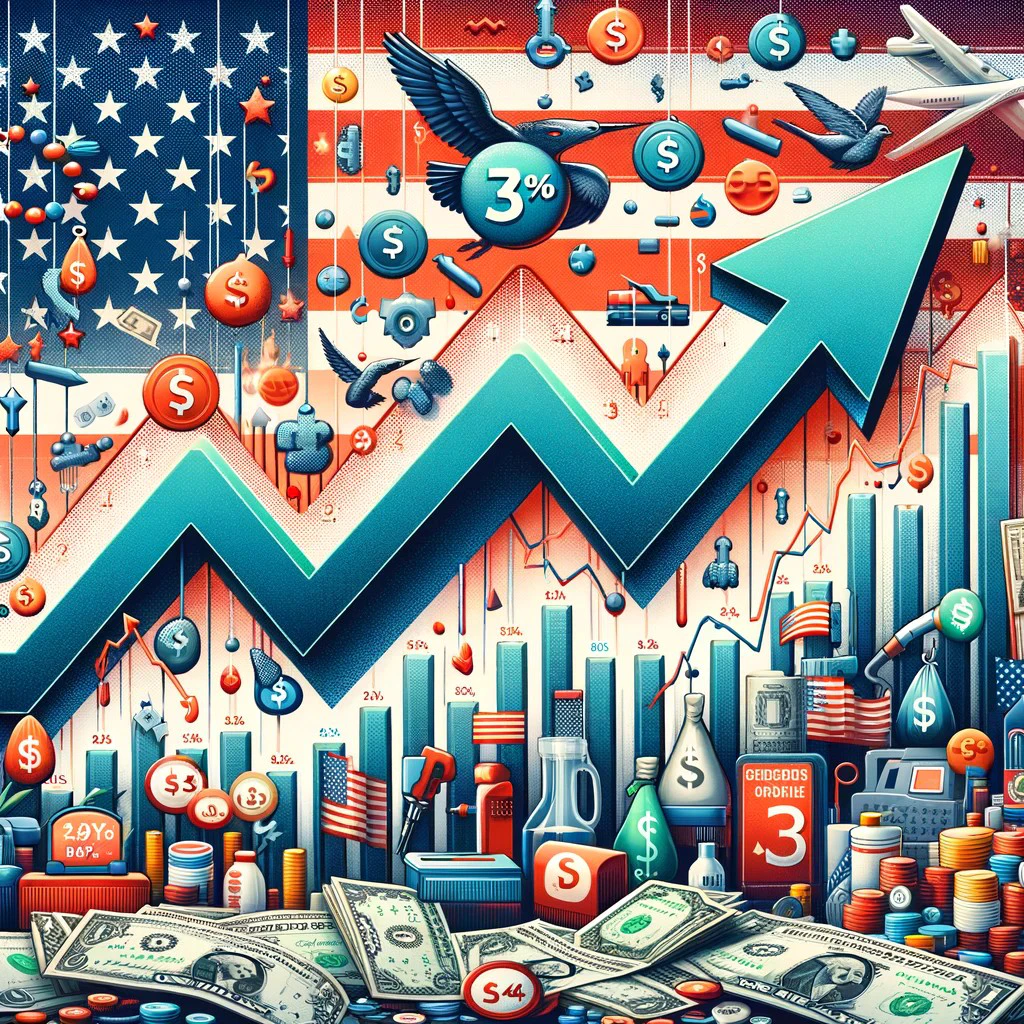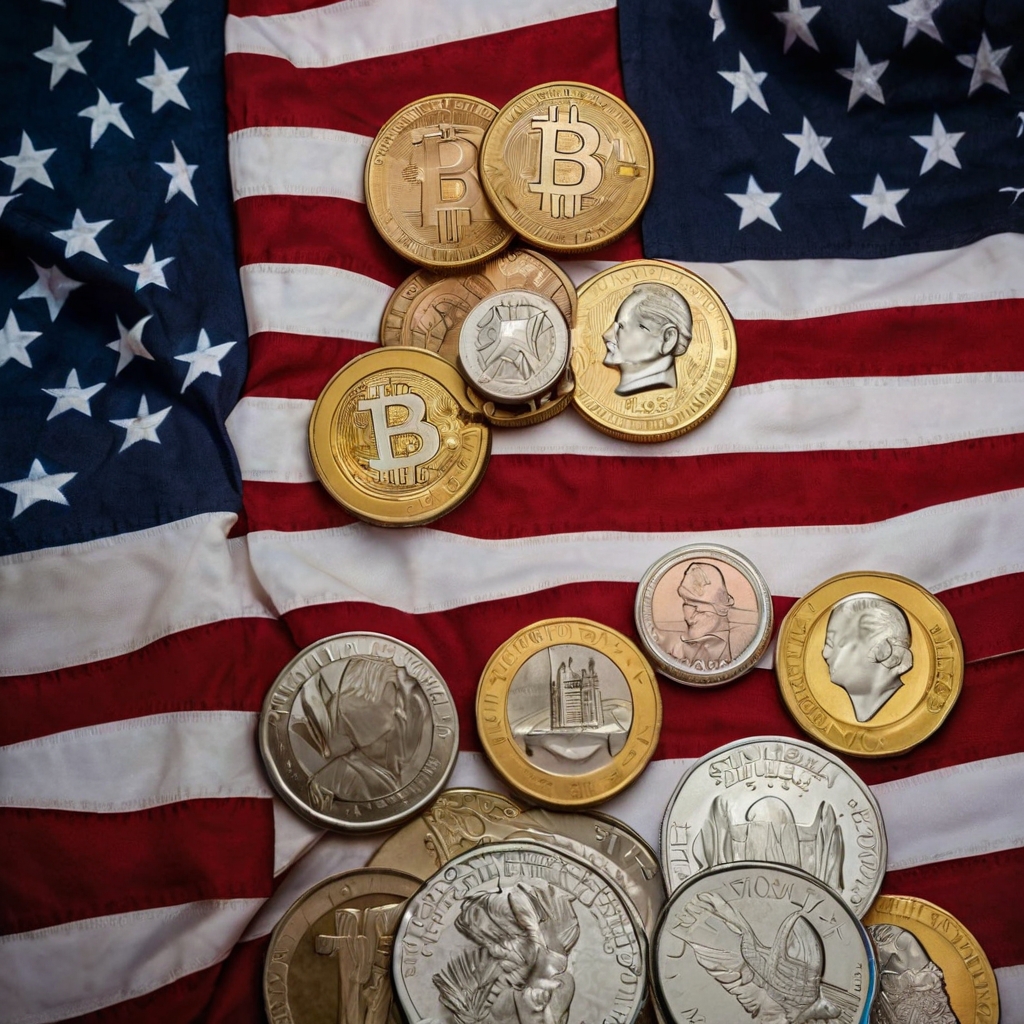The Impact of Economy and Inflation on the 2024 U.S. Election
As the 2024 U.S. presidential election draws near, one of the most critical topics shaping voter decisions is the state of the economy and rising inflation. With more than 81% of voters considering these issues pivotal, candidates are focusing heavily on their economic plans. Understanding how economic stability, inflation rates, and employment affect voters is key to forecasting the outcome of this highly anticipated election.

Understanding Inflation in 2024
Inflation refers to the increase in prices for goods and services, and it has been a pressing concern for Americans throughout the post-pandemic recovery. Higher costs of living, particularly in areas like housing, food, and energy, are hitting working-class and middle-class families the hardest. With inflation currently above pre-pandemic levels, many voters are paying close attention to how presidential candidates plan to address this ongoing issue.
How Inflation Impacts Voters
The relationship between inflation and voter behavior is clear: when prices rise, household budgets are strained, leading to increased dissatisfaction with the current administration. In 2024, this has made inflation a top priority, especially for Republican voters. Republican economic policies often emphasize lowering taxes and reducing government spending to curb inflation, while Democratic proposals typically focus on increasing wages and government assistance to offset rising costs.
Key Economic Proposals from the 2024 Candidates
Both major candidates have outlined their economic strategies in the face of rising inflation, but their approaches differ significantly:
- Republican candidate’s stance on inflation: Their economic platform focuses on tax cuts for businesses to encourage growth, combined with deregulation aimed at reducing costs across industries. They also advocate for a more aggressive approach to tackling interest rates and balancing the federal budget.
- Democratic candidate’s approach: Their policy highlights a focus on raising the minimum wage, expanding access to affordable housing, and providing more robust safety nets for those impacted by inflation. They argue that a more equitable distribution of wealth can help stabilize the economy in the long run.
The Link Between Employment and Economic Growth
Another critical aspect of the economic debate is employment. With the U.S. experiencing fluctuations in the unemployment rate during the pandemic recovery, job creation has become a central theme in both parties’ platforms. Republican proposals often lean toward incentivizing the private sector to create jobs, while Democrats support government-backed programs that foster job growth in areas like renewable energy and infrastructure.
Voter Concerns About Economic Security
Beyond immediate inflation concerns, voters are also worried about the long-term economic outlook. Issues like student loan debt, healthcare costs, and social security are frequently mentioned alongside inflation as major financial concerns. Each candidate’s ability to present a plan that not only addresses the current state of the economy but also provides a vision for sustainable growth will play a significant role in shaping voter preferences.
Inflation and the Federal Reserve
One of the most debated aspects of inflation is the role of the Federal Reserve. The Fed’s decisions on interest rates can either slow down or speed up inflation. In 2024, candidates are discussing how they would work with the Fed to control inflation without causing a recession. A balanced approach to monetary policy is crucial, as the wrong move could negatively affect both employment rates and overall economic growth.
Why the Economy Will Decide the 2024 Election
Ultimately, the election may hinge on which candidate can present the most compelling plan to improve the economy. While inflation is the immediate concern, voters are also thinking about their long-term economic futures, including job security and the rising cost of living. Candidates will need to address these fears with actionable plans, or risk losing voter confidence.
Conclusion – The Impact of Economy and Inflation on the 2024 U.S. Election
The issues of inflation and economic growth are key drivers in shaping the 2024 U.S. election. With voters facing higher costs in essential goods and services, their concern for economic stability is more pronounced than ever. Both candidates will need to focus on providing realistic solutions that address not only the short-term impacts of inflation but also the broader scope of economic security, including job creation, wage increases, and long-term financial planning. In an election where economic anxiety is paramount, the candidate who can articulate a clear and compelling economic vision will likely secure the support of a majority of voters.
FAQ
H2: What causes inflation to rise?
Inflation increases when there is an imbalance between supply and demand. Factors such as higher production costs, labor shortages, and supply chain disruptions can all contribute to inflation. In the case of the U.S., the economic recovery after the pandemic, coupled with increased consumer spending, has driven inflation rates upward.
H2: How does inflation affect everyday Americans?
When inflation rises, the cost of living also goes up. Prices for everyday essentials like food, fuel, housing, and healthcare increase, while wages may not rise at the same pace. This leaves many Americans struggling to maintain their standard of living.
H2: How are the presidential candidates addressing inflation?
The 2024 candidates have different approaches to handling inflation. Republicans generally focus on reducing taxes and cutting government spending to stimulate economic growth, while Democrats advocate for raising wages, increasing social safety nets, and investing in long-term economic equality.
H2: What role does the Federal Reserve play in controlling inflation?
The Federal Reserve uses interest rates as a tool to control inflation. By raising rates, the Fed can make borrowing more expensive, which slows down consumer spending and business investments. Conversely, lowering rates can stimulate economic growth but risks increasing inflation further.
H2: Can inflation be completely controlled?
While inflation can be managed, it’s challenging to completely control due to factors like global economic trends, natural disasters, and unforeseen events. However, sound economic policies and careful monetary control can help mitigate its impact.


Pingback: Trump 2024: What Could a Victory Mean for the U.S. Economy?